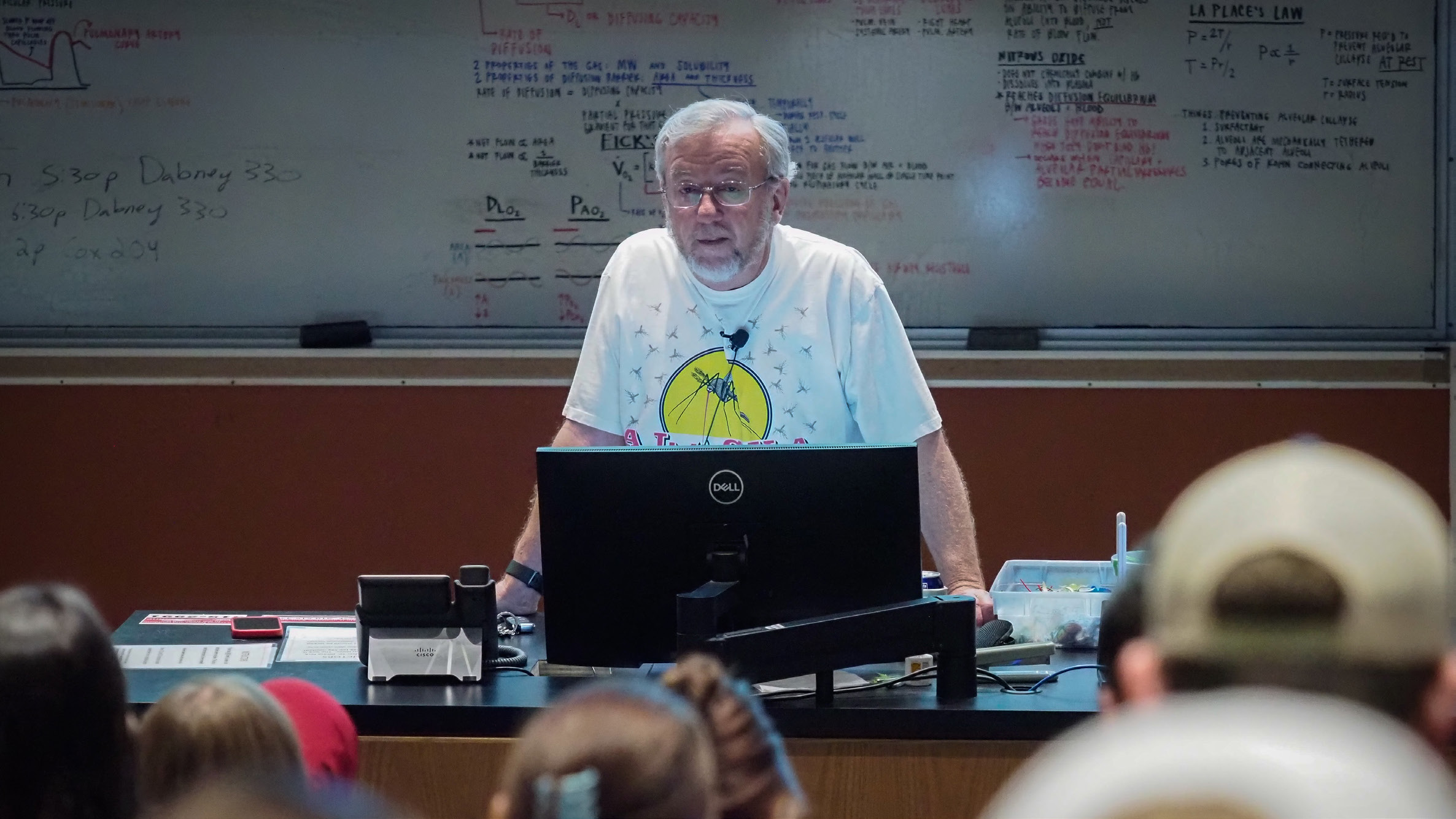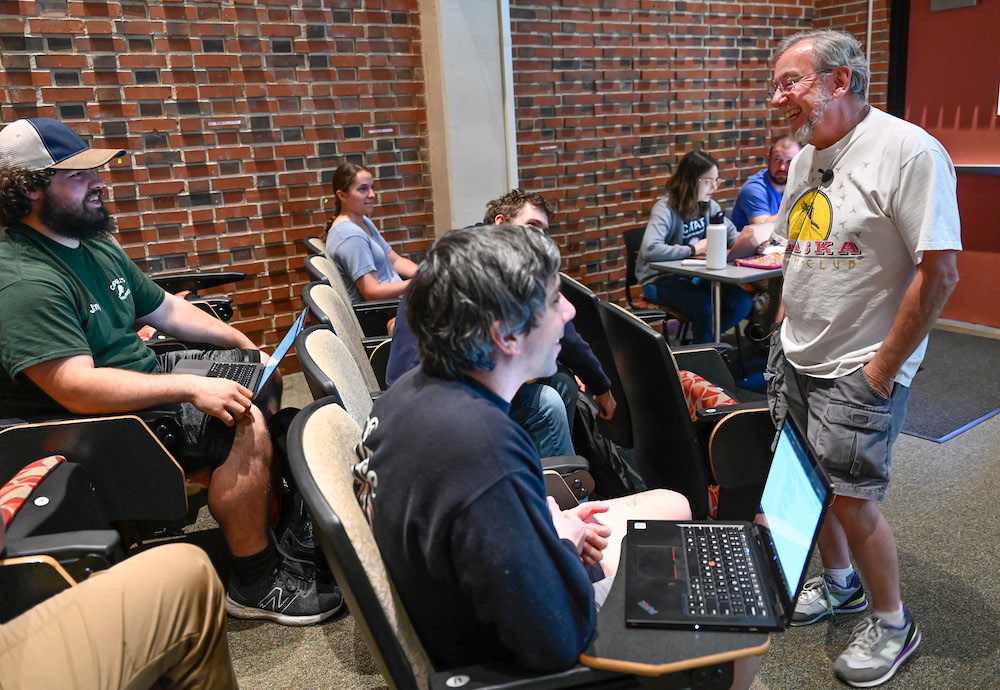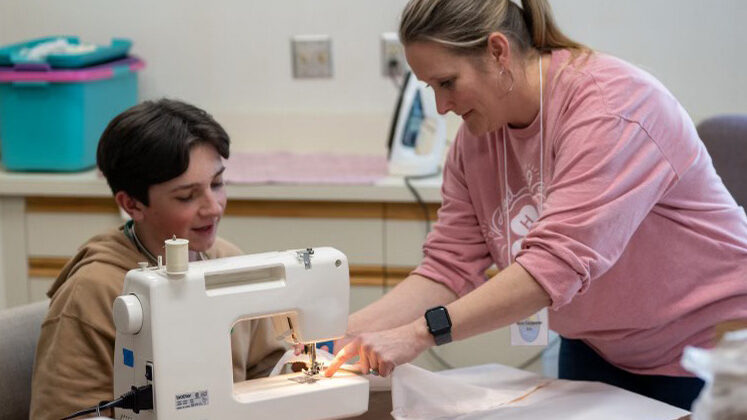9,000 Students and Counting
A lively class on insects inspires students’ appreciation for the natural world and for the teaching skills of the professor who makes the course unforgettable.

Plastic insects fly across the lecture hall, tossed to students who answer questions correctly. The entomology professor, who’s wearing a yellow T-shirt with a mosquito on the front, likes to liven things up. A few weeks earlier, he served up bug-based snacks for a lecture on how insects and the food supply are inextricably linked, and most of the students found the courage to try a bite.
“I love food day,” Clyde Sorenson says with a chuckle.
Students who enroll in Entomology 201 to fulfill a science requirement don’t expect such a memorable class. But Sorenson has been perfecting his delivery over 27 years of teaching at North Carolina State University.
“Frankly, getting in front of a large classroom is the highlight of my week,” Sorenson says. “It’s just a blast. It always has been.”
The three-time NC State alumnus began work in the Department of Entomology and Plant Pathology after earning a bachelor’s in wildlife biology and a master’s and doctorate in entomology. His first appointment was in research.
Mentor Ron Kuhr had other ideas, telling Sorenson, “You’d make a great teacher, so let’s start bending you in that direction.”
The night before his first lecture, Sorenson didn’t sleep well. After that, he was a natural, according to a woman who sat in the front row of the first class he ever taught.
“He has this tremendous voice, like it’s a bullfrog or something coming out of him. It’s beautiful and it commands the room,” Eleanor Spicer Rice says. “You can’t help but pay attention. And then when you hear what he’s talking about, everything the man says is fascinating.”
Spicer Rice found inspiration to study ants and bees, earn a Ph.D. in entomology, and become a science writer and author of multiple books.
“There is a reason why so many people leave his class to turn over logs and rocks, eager to touch things they were frightened of before, wanting to know more about this world we share with so many other living things,” Spicer Rice says. “There’s a reason I decided to abandon all other weird dreams I had to devote so many years of my life to studying entomology, and trying to share the joy of the natural world with others as he does.”
So far, Sorenson has taught more than 9,000 students.

“My main goal is not to turn anybody into an entomologist, though that sometimes does happen,” he says. “It’s to basically change their attitudes about these animals, because insects are so critically important to how the world functions, so pervasive and diverse.”
In addition to his undergraduate class, he teaches four graduate courses in a two-year rotation.
He recently added up how many students he’s taught, consulting photographic seat charts that make it easier for teaching assistants to take attendance in the lecture hall and for Sorenson to learn students’ names.
While he plans to teach at least 10,000 students before retiring, Sorenson has a teaching legacy in mind. “I want to make sure that the next generation of university professors includes people who have a real zeal, a real love for teaching, and are good at it, enthusiastic about it.”
Everything the man says is fascinating.
He mentors graduate students to teach a spring section of 20 undergraduates in the 201 class, giving them experience as instructors of record. To expand those efforts, he and his wife, Lee, helped establish and contribute to the Ronald Kuhr Entomology Teaching Assistant Award Endowment, building on his mentor’s efforts. In 2021, the Sorensons established the complementary Lee and Clyde Sorenson Entomology Teaching Assistant Endowment that will provide additional funds for teaching. They are funding this endowment now and growing it through a bequest in their estate plans.
He’s investing in the students who inspire him.
“Many of the undergrads who come through Entomology 201 sincerely want to do something good for the world,” Sorenson says. “There’s tremendous concern about the environment, about society and about making the world a better place. It gives me great optimism for the future.”
Gifts may be made to the Kuhr and/or Sorenson Endowments here: https://go.ncsu.edu/sorenson-and-kuhr-endowments
- Categories:


